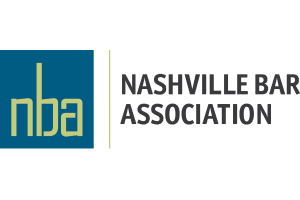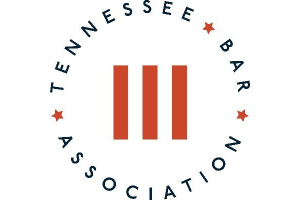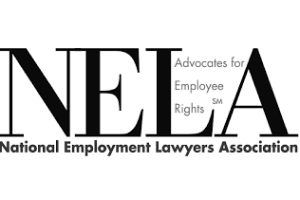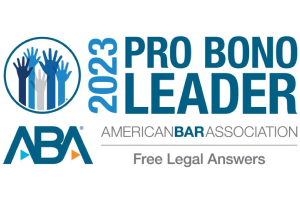for Workers
Retaliation for Opposing Discrimination or Harassment
Retaliation for Reporting Discrimination or Harassment
Retaliation is a top concern for employees who wish to do the right thing and speak out against discrimination and harassment in the workplace. Employers who retaliate against employees for reporting such concerns are intentionally making employees afraid so they can continue their unlawful employment practices.
Our skilled Nashville retaliation lawyers have significant experience handling retaliation claims for employees throughout Tennessee. Contact us online or by calling the number above.
Federal Protections from Unlawful Workplace Retaliation
Federal and Tennessee law protect employees who oppose unlawful discrimination or harassment at work based on age, race, color, creed, religion, national origin, sex (including pregnancy, sexual identity, and sexual orientation), and disability.
To be protected from retaliation under federal and state law, you must have engaged in “protected activity” and suffered an “adverse employment action.”
Protected Activity
“Protected activity” generally means you opposed what you believed was an unlawful employment practice. While vague complaints may not constitute “protected activity,” a complaint does not need to be formal, but best practice is to submit a complaint in writing and retain a copy for your records.
Common examples of protected activity in the context of workplace discrimination or harassment include:
- Filing a charge of discrimination or lawsuit
- Complaining to human resources about discrimination against yourself or another
- Assisting another employee in opposing discrimination
- Providing a witness statement in a workplace investigation
Importantly, the employment practice you oppose does not need to be unlawful if you had a good faith belief that the practice is unlawful. For example, reporting potential discrimination to human resources constitutes “protected activity” even if the alleged discrimination turns out to be lawful. Also, if you act as a witness in a workplace discrimination investigation or advocate on behalf of another employee then you are likely protected as well.
Adverse Employment Action
Under federal law, an adverse employment action is any harmful employer action that could “dissuade a reasonable worker from making or supporting a charge of discrimination.” Burlington N. & Santa Fe Ry. v. White, 548 U.S. 53, 57, 126 S. Ct. 2405, 2409 (2006).
Common “adverse employment actions” include:
- termination
- demotion
- pay cut
- forced retirement
- constructive discharge
- undesirable transfer (work shift or location)
- denied promotion
- denied pay raise
- written reprimand
- severe threats
- filing counterclaims against an employee in court
Proving a Retaliation Claim
To support a retaliation claim, you must show a legal connection between your protected activity and the adverse employment action taken against you. In defending retaliation claims, employers often claim that the employee did not engage in protected activity or, alternatively, that the decision maker who terminated the employee had no knowledge of the protected activity.
However, direct evidence of an employer’s knowledge is not required; rather, knowledge can be imputed or inferred based on factors such as the size of the employer, processes used in prior personnel decisions (including individuals who were consulted), and the timing of the adverse employment action in relation to the protected activity. Generally, the sooner the adverse action occurs after you engage in protected activity the stronger the retaliation claim. Conflicting stories often create credibility determinations for a jury to decide.
Overview of Federal and Tennessee Anti-Retaliation Laws
In Tennessee, employees are protected against retaliation for reporting discrimination or harassment by Title VII of the Civil Rights Act of 1964 (Title VII) and the Tennessee Human Rights Act (THRA).
Our knowledgeable retaliation attorneys in Nashville file complaints on behalf of Tennessee workers and seek maximum compensation for what they have endured.
Title VII
Title VII is a federal anti-discrimination law that applies to employees across the U.S. Title VII provides robust protections against retaliation for workers.
- Forbids employers from taking any “adverse employment action” against an employee for opposing an unlawful employment practice or participating in a Title VII investigation, proceeding, or hearing. 42 U.S.C. § 2000e-3(a).
- Applies to current or former employers with 15 or more employees
- Requires a Charge of Discrimination be filed with the EEOC as a mandatory prerequisite before bringing suit in court
- 300 day statute of limitation for non-federal workers in Tennessee (45 days for federal employees)
- Permits recovery of back pay, front pay, emotional pain and suffering damages, punitive damages, and attorney’s fees and costs
- Damages for emotional pain, and to punish the employer, are capped
Tennessee Human Rights Act
The THRA is Tennessee’s anti-discrimination law that prohibits discriminatory behaviors in the workplace.
- Forbids retaliation against employees who oppose discriminatory practices in the workplace. Tenn. Code Ann. § 4-21-301.
- Generally construed identically with Title VII
- Applies to current or former employers with 8 or more employees in Tennessee
- Tennessee Human Rights Commission can investigate complaints, but filing a charge is optional (one year statute of limitation)
- Permits recovery of similar damages available under Title VII but no punitive damages
- Damages for emotional pain and suffering are capped
Do Not Wait – Contact Us Today
You deserve justice for the workplace retaliation you have suffered.
Contact our experienced Nashville retaliation attorneys online or at the number above for a free online case review.














